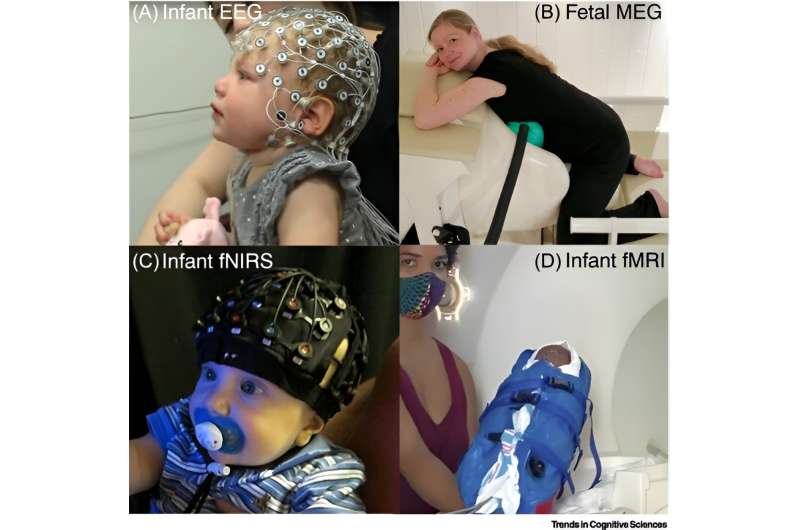This article has been reviewed according to Science X's editorial process and policies. Editors have highlighted the following attributes while ensuring the content's credibility:
fact-checked
peer-reviewed publication
trusted source
proofread
New research sheds fresh light on mystery of infant consciousness

There is evidence that some form of conscious experience is present by birth, and perhaps even in late pregnancy, an international team of researchers from Trinity College Dublin and colleagues in Australia, Germany and the U.S. has found.
The findings, published today in Trends in Cognitive Science, have important clinical, ethical and potentially legal implications, according to the authors.
In the study, titled "Consciousness in the cradle: on the emergence of infant experience," the researchers argue that by birth the infant's developing brain is capable of conscious experiences that can make a lasting imprint on their developing sense of self and understanding of their environment.
The team included neuroscientists and philosophers from Monash University in Australia; University of Tübingen in Germany; University of Minnesota in the U.S., and Trinity College Dublin.
"Although each of us was once a baby, infant consciousness remains mysterious, because infants cannot tell us what they think or feel," explains one of the two lead authors of the paper Dr. Tim Bayne, Professor of Philosophy at Monash University (Melbourne): "Nearly everyone who has held a newborn infant has wondered what, if anything, it is like to be a baby. But of course we cannot remember our infancy, and consciousness researchers have disagreed on whether consciousness arises 'early' (at birth or shortly after) or 'late'—by one year of age, or even much later."
To provide a new perspective on when consciousness first emerges, the team built upon recent advances in consciousness science. In adults, some markers from brain imaging have been found to reliably differentiate consciousness from its absence, and are increasingly applied in science and medicine. This is the first time that a review of these markers in infants has been used to assess their consciousness.
Co-author of the study, Lorina Naci, Associate Professor in the School of Psychology, who leads Trinity's Consciousness and Cognition Group, explained, "Our findings suggest that newborns can integrate sensory and developing cognitive responses into coherent conscious experiences to understand the actions of others and plan their own responses."
The paper also sheds light into "what it is like" to be a baby. We know that seeing is much more immature in babies than hearing, for example. Furthermore, this work suggests that at any point in time, infants are aware of fewer items than adults, and can take longer to grasp what's in front of them, but they can easily process more diverse information, such as sounds from other languages, than their older selves.
More information: Tim Bayne et al, Consciousness in the cradle: on the emergence of infant experience, Trends in Cognitive Sciences (2023). DOI: 10.1016/j.tics.2023.08.018



















